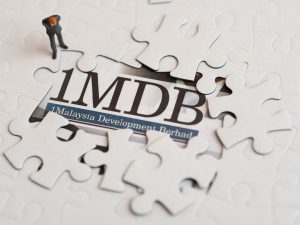Former Malaysian Prime Minister Najib Razak’s prison sentence for corruption has been reduced from 12 to six years by the Pardons Board following a meeting earlier this week, according to a media report published yesterday.
Citing sources “including senior government officials,” the Singapore-based Channel News Asia (CNA) reported that the Board, which met on January 29, had decided to halve Najib’s sentence, and reduce his RM210 million ($44.4 million) fine by an unspecified amount.
In office from 2009 until his shock loss at the general election of 2018, Najib was jailed in August 2022 after losing his final appeal in one of several ongoing cases linked to the massive looting of the 1MDB state investment fund. In 2020, a court found him guilty of abuse of power, criminal breach of trust, and money laundering for illegally receiving around $10 million from SRC International, a former unit of 1MDB.
Less than two weeks later, Najib’s lawyers applied for a royal pardon in a bid to secure his early release. The former leader has consistently denied any wrongdoing.
U.S. and Malaysian investigators estimate that more than $6 billion was stolen from 1MDB between 2009 and 2014 by high-level officials of the fund and their associates, and concealed within a labyrinth of shell companies and dummy corporations.
There has been no official announcement from the Pardon Board, which includes the attorney-general and other government officials. But rumors have swirled about a possible pardon for the former PM since Tuesday, when Zaliha Mustafa, minister in the Prime Minister’s Department, confirmed that the Board had met this week. She did not say if Najib’s request was discussed, but that an official statement would be issued in due course.
That was repeated yesterday by Home Affairs Minister Saifuddin Nasution Ismail, who confirmed to reporters that the Cabinet had discussed a request by Najib for a royal pardon. He said that it would be up to the discretion of the Pardons Board.
This vacuum of information has prompted all sorts of speculation on Malaysian social media, with many viewing the pardon as a fait accompli. On Tuesday, Malay-language media outlet Utusan was forced to retract a report claiming that a full pardon had been granted to Najib.
This suggests that the CNA report should be taken with a pinch of salt pending an official confirmation from the Pardons Board. But there is no doubt that the question of whether to reduce Najib’s sentence is freighted with political implications for Prime Minister Anwar Ibrahim, who has taken a public stand against corruption and whose administration has initiated a number of anti-graft probes against high-ranking former government officials.
While Anwar himself will not make the decision on whether to reduce Najib’s sentence, it can’t help but reflect on Anwar’s anti-corruption stance, and whether Malaysia is still a country in which the rich and powerful are held to a different criminal standard than the rest of the population. This is especially the case at a time when his administration is being accused of pursuing anti-corruption investigations against its political enemies, while ignoring them in the case of its allies.
If confirmed, CNA reported that the reduction would mean that Najib is expected to complete his sentence in August 2028. But with parole for good behavior, he could be out after serving two-thirds of the new jail term, in August 2026 – potentially in time for the country’s next general election – though a number of other 1MDB-related cases against Najib remain ongoing.

































